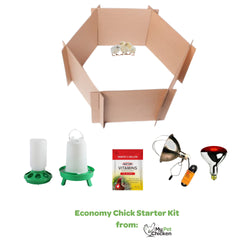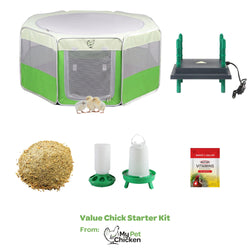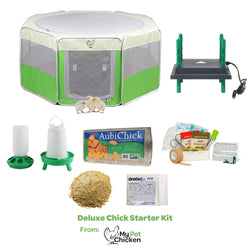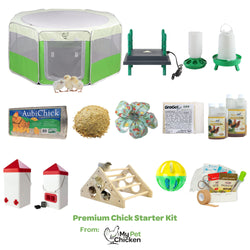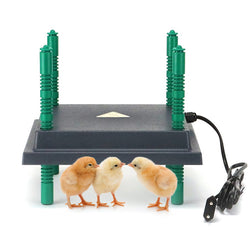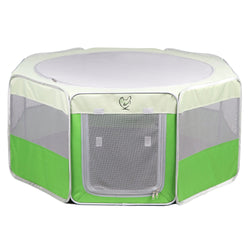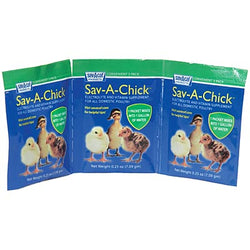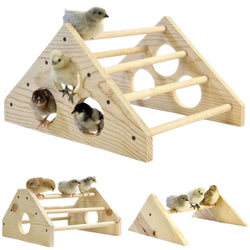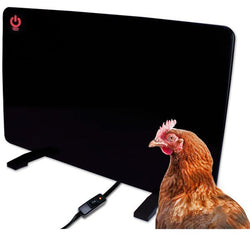What do I need to know about raccoons if I keep chickens?
Back to blog
If you keep chickens, you need to know that raccoons will absolutely prey on your flock if given the opportunity. To keep your flock safe, you need to make sure you outsmart them using the tips you'll find below.

With their black masks adding to their reputation as scoundrels, raccoons can be up to 30 inches long and weigh up to 20 pounds. As such, without your help, chickens are no match for them. Raccoons may very well be the number one land predator of chickens in the United States. The can be found almost everywhere in North America, as well as in some introduced areas in Europe and Asia.
They can climb walls and over fencing, and they can reach their hands through wire mesh that is too small for their whole bodies to fit. In that last case, they will pull out parts of your birds if that is all they can reach. Raccoons have great manual dexterity and can open complex latches and closures and can dig under fences and into runs.
While raccoons are a formidable predatory nemesis, you can outsmart them and thwart their advances by following these tips to protect your flock.

With their black masks adding to their reputation as scoundrels, raccoons can be up to 30 inches long and weigh up to 20 pounds. As such, without your help, chickens are no match for them. Raccoons may very well be the number one land predator of chickens in the United States. The can be found almost everywhere in North America, as well as in some introduced areas in Europe and Asia.
How raccoons hunt
A raccoon that gets into your coop or run will normally kill multiple birds if they can get to them, and the bodies will usually be left where they were killed, rather than carried away. Raccoons won't eat the whole bird or even most of it; they will often just eat the contents of your birds' crops and occasionally some of the chest. They are awfully destructive of your flocks' lives without bothering to eat much of their victims.They can climb walls and over fencing, and they can reach their hands through wire mesh that is too small for their whole bodies to fit. In that last case, they will pull out parts of your birds if that is all they can reach. Raccoons have great manual dexterity and can open complex latches and closures and can dig under fences and into runs.
How to protect your flock from raccoons
- Don't attract raccoons to your yard. For instance, don't leave out cat food, and make sure they can't get to wild bird feeders or any seed beneath the feeders. In dry areas or during dry periods, raccoons may be attracted to sources of water in your yard, too. Don't leave anything out for them!
- Make sure any wire mesh on your coop is securely attached because raccoons will try to pry it off or bend it enough that they can squeeze through. Don't use chicken wire: chicken wire is not a barrier to predators. Raccoons and other predators can tear right through it like tissue paper. (Chicken wire should only be used to keep chickens in, not to keep predators out.) Ideally, use hardware cloth with a fine mesh that raccoons can't reach through (use 1/2" or 1/4"). To keep raccoons from burrowing into your run, you can attach wire mesh to the bottom of the run and cover it with several inches of bedding, or use an apron fence around the perimeter of the run.
-
Use complex latches. Raccoons are very smart, but although they have been shown to open complex latches in laboratory tests, they will not usually be driven to figure out something really complex in the real world unless they are starving and all their easy meal options are gone. On your coop, latches that require two or more steps to operate are best. For example, a simple gate latch can usually be secured from raccoons just by inserting a screw lock carabiner into the bottom hole.
On the other hand, some people simply padlock everything. That is not usually necessary, and can make access more inconvenient for you, too. However, with a padlock, you will know they are safe. Raccoons are chiefly nocturnal, so if you free range your flock during the day, be sure to lock your birds up securely at night with the precautions recommended above.
Can my flock get rabies from raccoons?
Raccoons are carriers of rabies, so if you do see a raccoon out during the day, be very cautious. It might just be hungry, but it might also be sick. Your birds can't get ill with rabies, as avian metabolism is just too different...but humans can! Use extreme caution.While raccoons are a formidable predatory nemesis, you can outsmart them and thwart their advances by following these tips to protect your flock.
